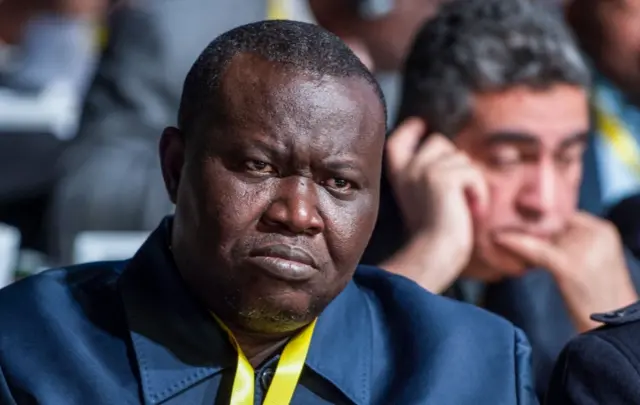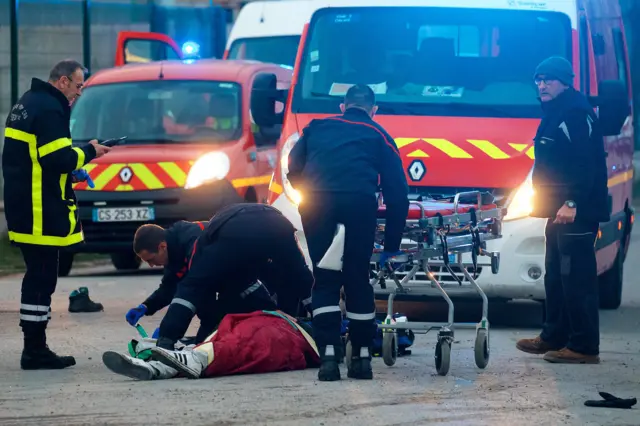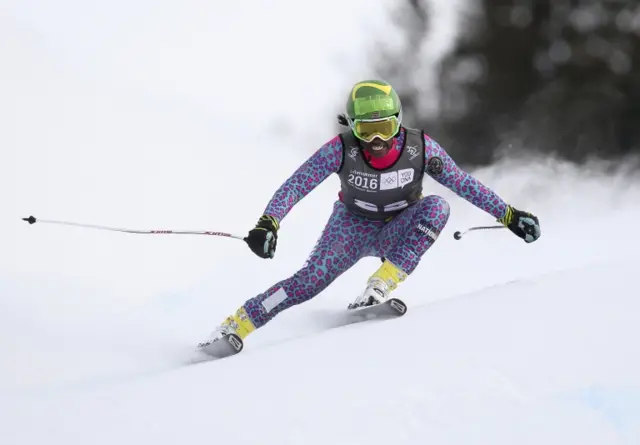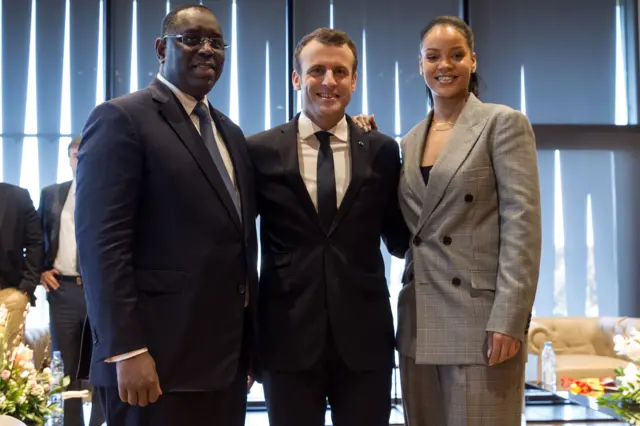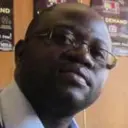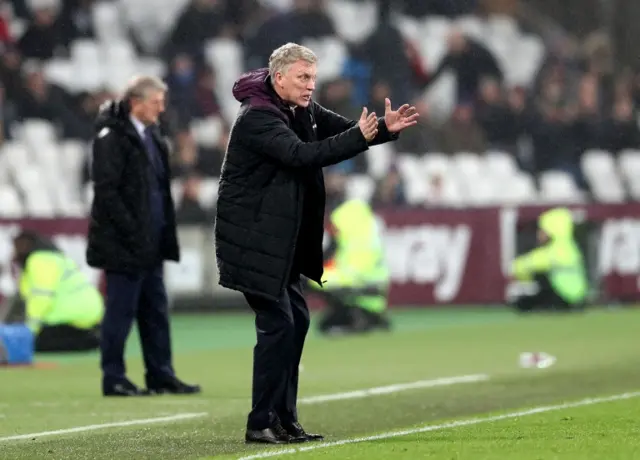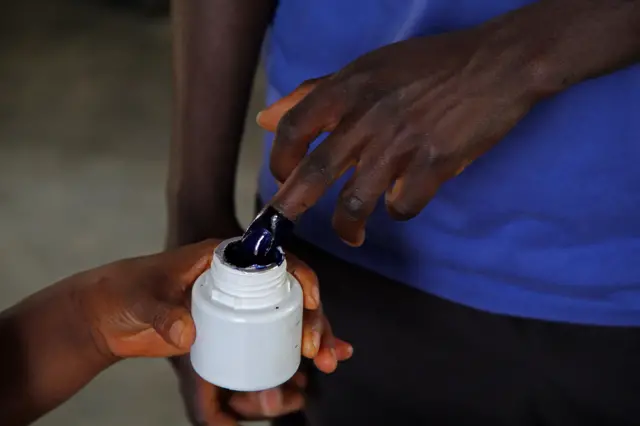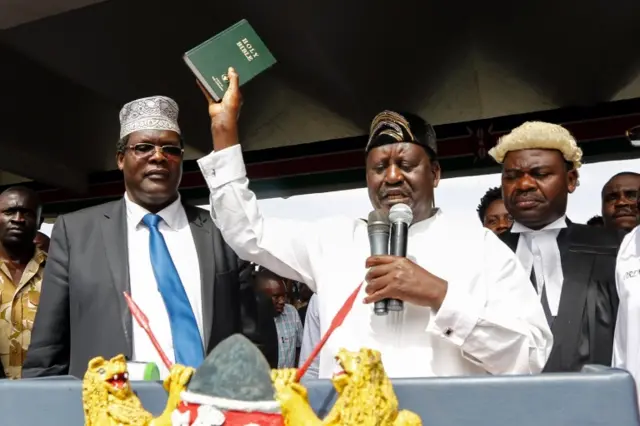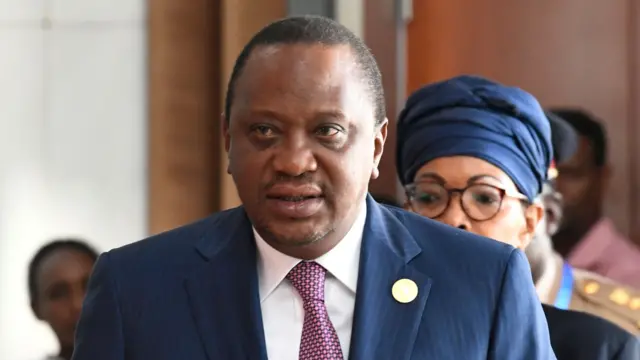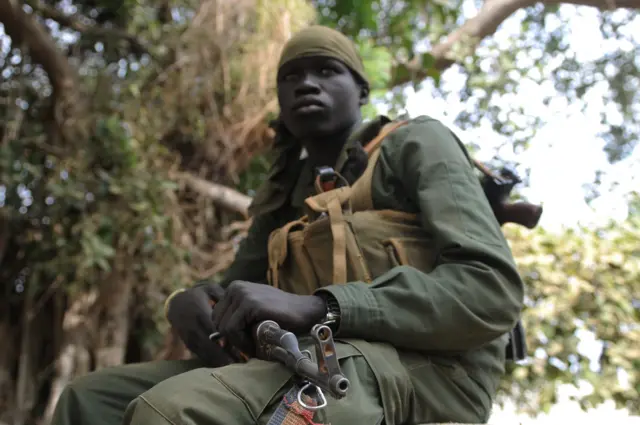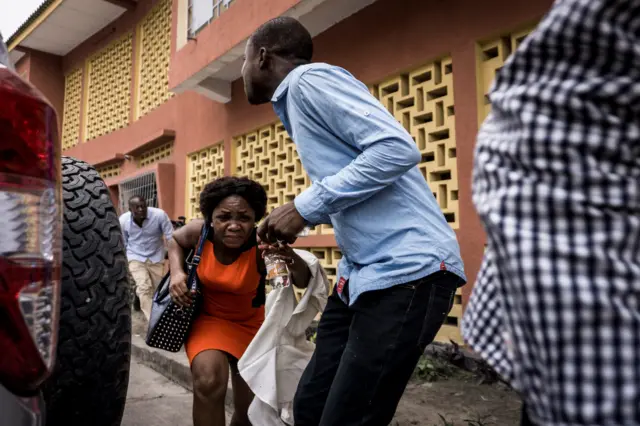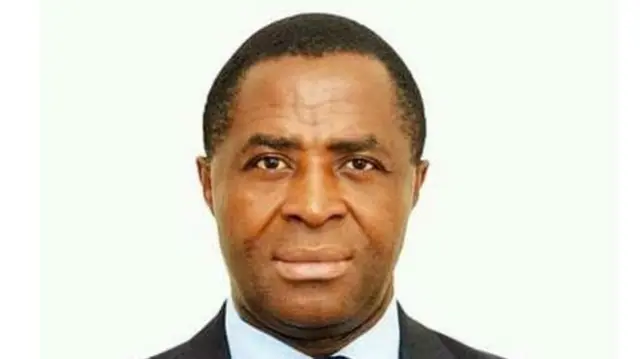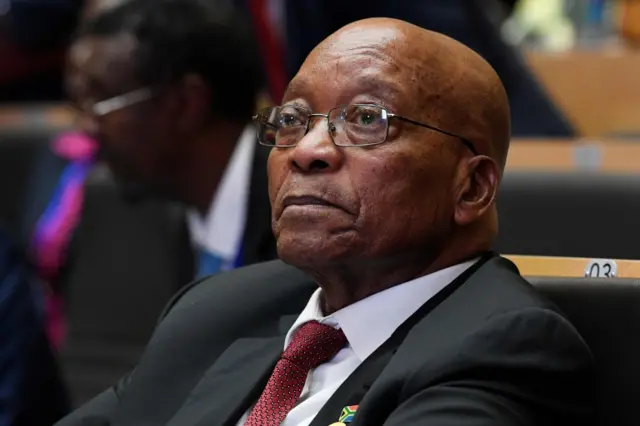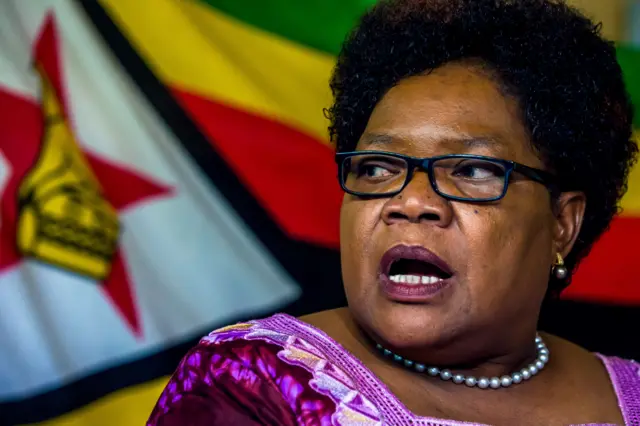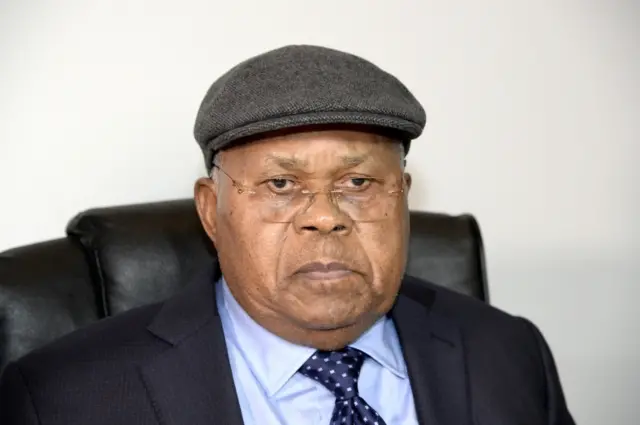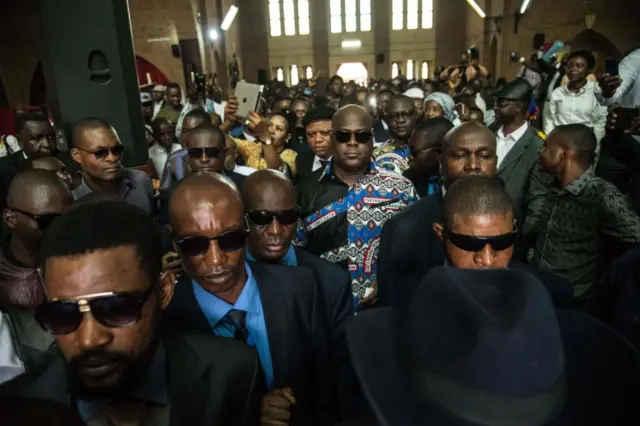Scroll down for Friday's storiespublished at 17:43 GMT 2 February 2018
We'll be back next week
That's all from BBC Africa Live today. Keep up-to-date with what's happening across the continent by listening to the Africa Today podcast or checking the BBC News website.
A reminder of today's wise words:
Quote MessageIf you try to throw a stone at God it will land on your head."
Sent by Maketh Kuot Deng, in Jonglei state, South Sudan
Click here and scroll to the bottom to send us your African proverbs.
And we leave you with this photo from Africa's week in pictures:
 Image source, EPA
Image source, EPA